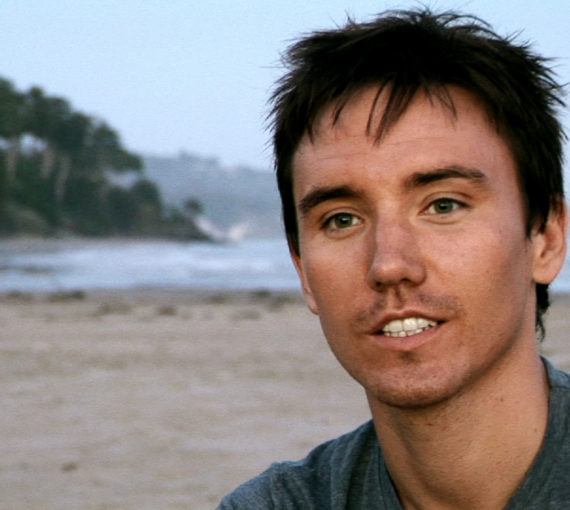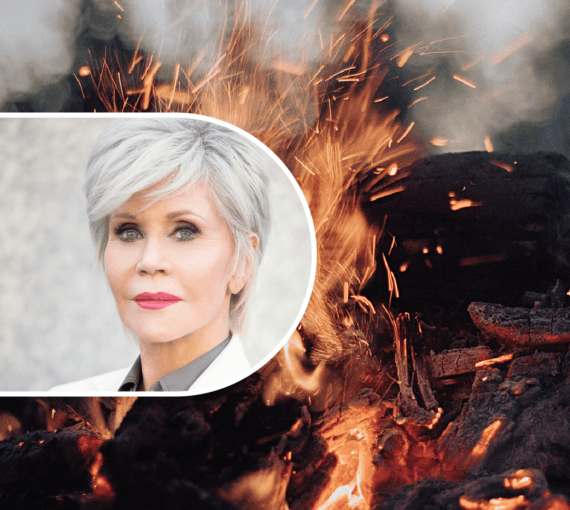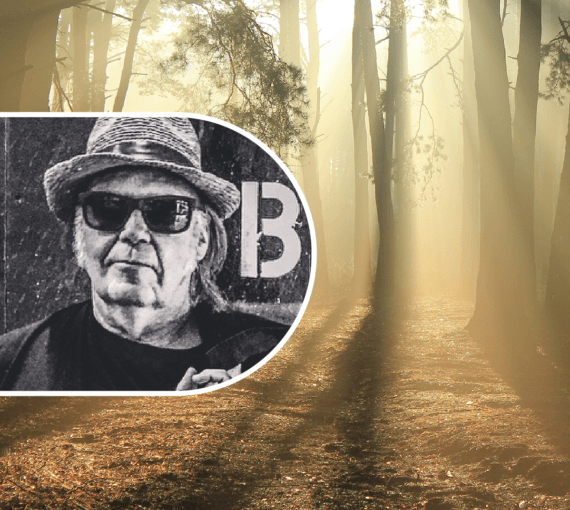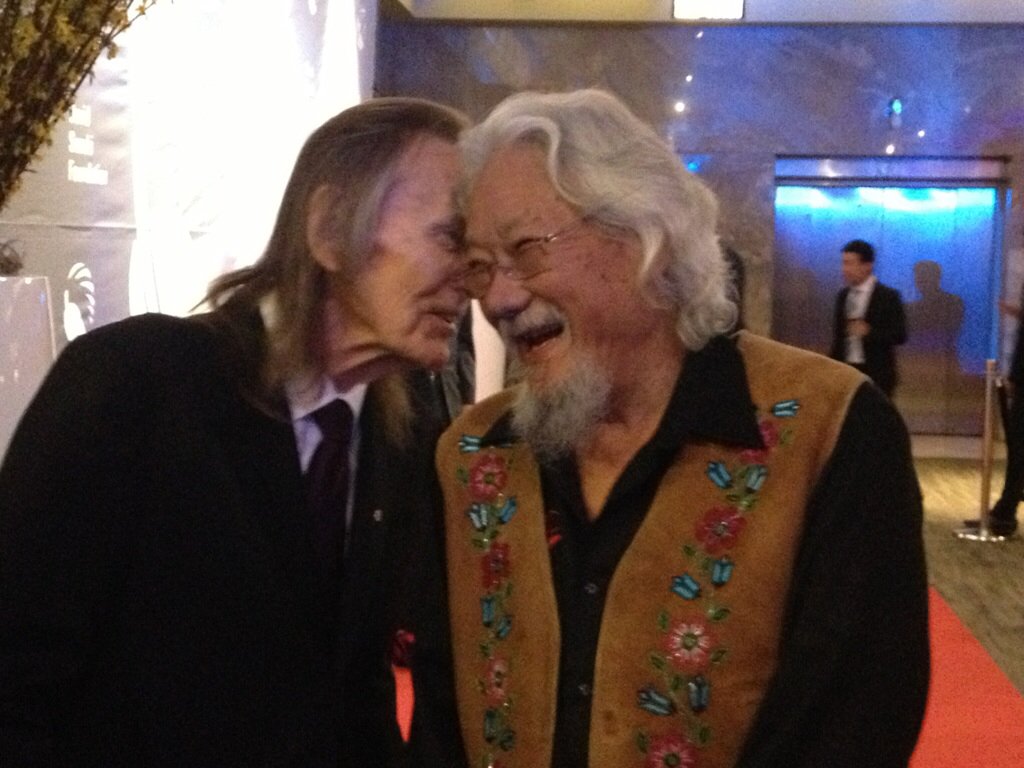
Gordon Lightfoot and David Suzuki share a happy moment at David Suzuki’s 80th birthday celebration and fundraiser in Toronto.
I met Gordon Lightfoot back in the 1980s. An avid outdoorsman who loved canoeing, he wanted to talk to me about nature and the environment, as he knew of me from CBC’s The Nature of Things.
By then he was already one of Canada’s best-known troubadours, celebrated for amazing songs including “Sundown,” “The Wreck of the Edmund Fitzgerald” and so many more. Gordon Lightfoot died on May 1 at age 84.
Although most people knew him for his brilliant songs, I will remember him also as a generous friend who was always willing to help without seeking credit.
In 1984, John McCandless, along with Chief Ruby Dunstan of the Lytton First Nation and Chief Leonard Andrew of the Lil’wat Nation, organized a festival to prevent logging in the 107,000-hectare Stein Valley, about 300 kilometres northeast of Vancouver. I couldn’t make the first concert in 1985 but was invited again the following year. I called Gordon Lightfoot, and he and his band came and performed for free. Gordon came to most of the festivals in following years, as did many of his friends and peers, including John Denver, Buffy Sainte-Marie, Bruce Cockburn, Blue Rodeo and others.
Although most people knew [Gordon Lightfoot] for his brilliant songs, I will remember him also as a generous friend who was always willing to help without seeking credit.
One year, John McCandless came to my house while Gordon was visiting. He said the festivals had driven the Lytton band into debt, “How much?” Gordon asked. McCandless replied, “$70,000.” Gordon immediately wrote a cheque. I remember John breaking into tears. Gordon never bragged about it or even talked about it. He was a huge part of the growing Stein festival. (Even Cher sent $5,000 through Norman Jewison, who attended.) It’s now Stein Valley Nlaka’pamux Heritage Park, managed by Lytton First Nation and the Province of British Columbia.
Gordon was also a generous supporter of the other environmental causes. He asked me to support his pal, Ian Tyson, in protesting against a proposed dam on the Oldman River in Alberta, and I was happy to join them.
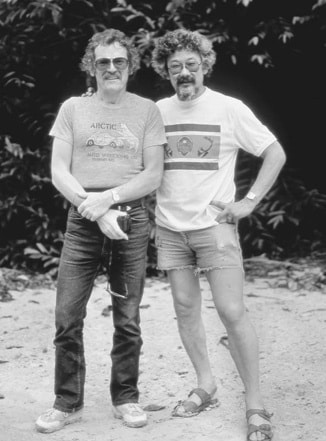 Gordon Lightfoot and David Suzuki on their way to the research station near Manaus, Brazil. |
Before the Foundation was started in 1990, I went to Brazil to film a two-hour Nature of Things special called “Amazonia: The Road to the End of the Forest.” There I met Kayapo leader Paulinho Paiakan (who sadly died in 2020 from COVID-19). He told me about the impacts of increasing colonial incursions into Kayapo territory, and about Indigenous resistance to a planned dam that would flood the territory. They needed money to stop it.
I invited him to Canada, and we held events in Ottawa and Toronto that raised $75,000 — a lot of money in those days. At the Toronto event, Gordon sang with the Nylons, and Margaret Atwood read a poem. Gordon then came to Ottawa to hang out with us.
Paiakan used the money to bring dozens of tribes to the site of the proposed dam, where they set up a traditional village and organized daily events with rubber tappers, environmentalists and supporters. My wife Tara and I attended and Tara organized planes, lodging and logistics for 40 people, including Gordon. Although he was a huge star by then, there he was just another guy, hoisting his own luggage, doubling up in hotels in Manaus and sleeping in a hammock at a research station near Manaus and in Altamira where the demonstration took place.
Sting also came and garnered a lot of the media attention. But Gordon was just there to help and to experience it. At the end of four days, the World Bank cancelled a US$500 million loan for the dam, which stopped it. Gordon said he wanted to go so he could sing for Paiakan, but he had to leave a day or two early. I know he didn’t find the trip easy, but he never complained. The point is, he came, supported Paiakan and the people and left without any fanfare. He contributed tremendously yet never bragged about it.
Gordon Lightfoot was a giant, but he contributed more than most people know. He was a humble man thrust into prominence by his talent. He used his music and celebrity to help others.
He also sang at fundraisers for the David Suzuki Foundation and donated a generous amount every year since its inception, even advancing triple the amount one year when we needed money for an artist to create a fundraising poster.
Gordon came to my 80th birthday celebration and fundraiser in Toronto, again without fanfare — just happy to see me and be there.
Gordon Lightfoot was a giant, but he contributed more than most people know. He was a humble man thrust into prominence by his talent. He used his music and celebrity to help others, without ever asking for credit.
I’m grateful to Gordon for his music, friendship and humble generosity, and I know the Foundation staff are also thankful for all he’s made possible. We’ll miss him, but he will live on in his music and in our fond memories.
